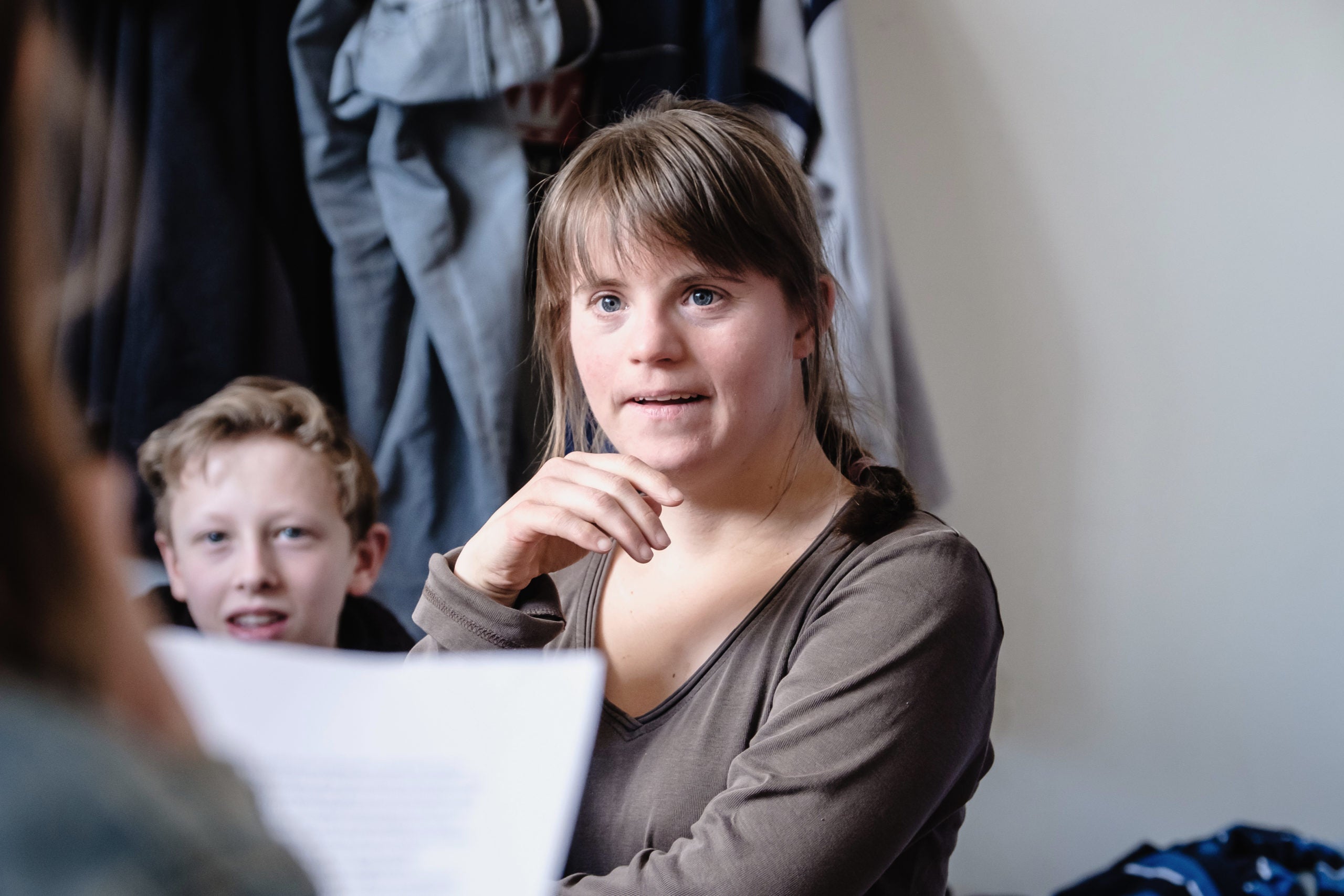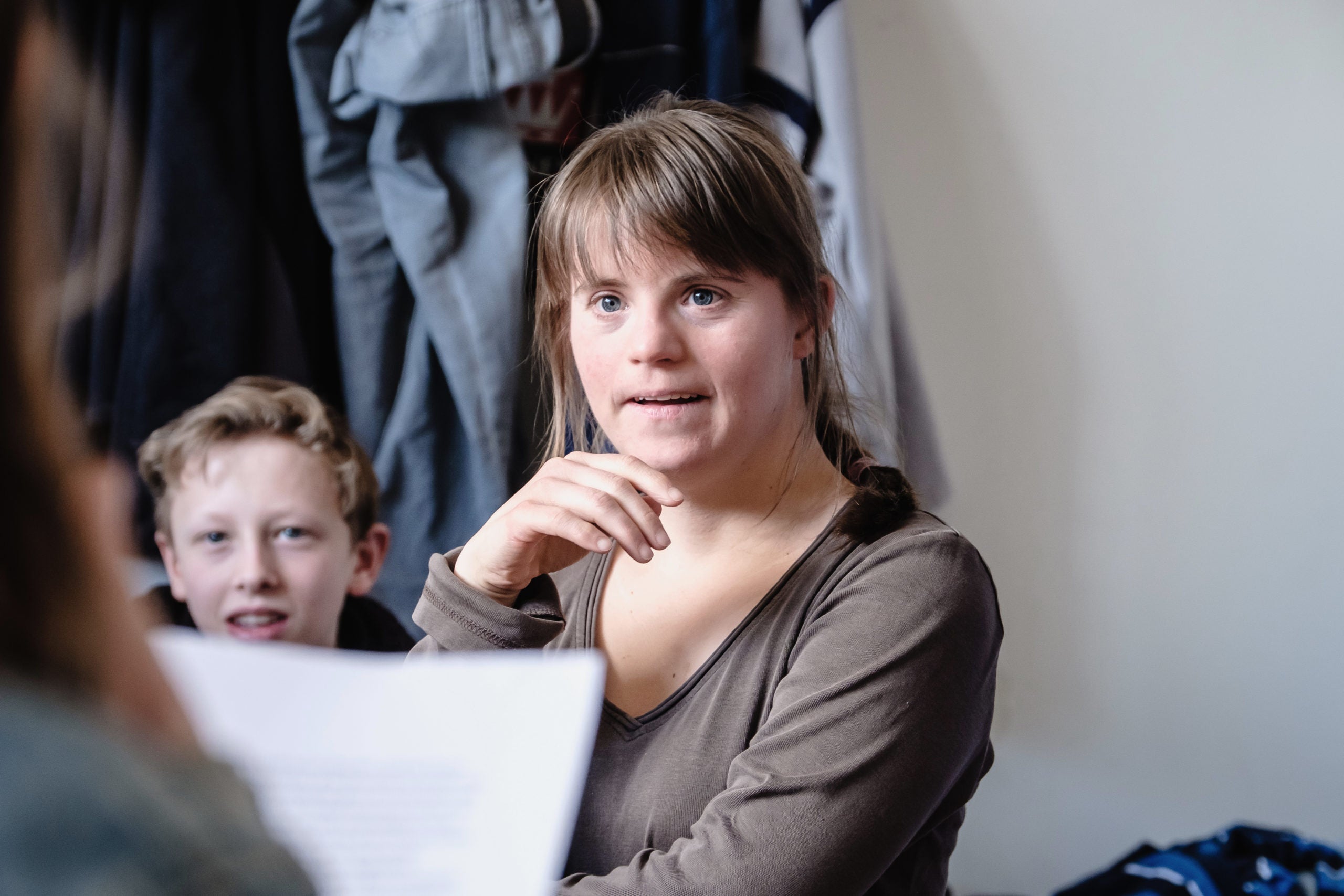Day 3
1 min. Career preparation for people with disabilities in Germany
 Free choice of workplace for all Free choice of workplace for all
Free choice of workplace for all Free choice of workplace for all


With empowerment courses for self-determined work

Raul Krauthausen presents his favorite project in the video
need
Providing knowledge about alternatives to working in sheltered workshops for people with disabilities and encouraging them to lead a self-determined professional life
activity
Social Heroes employees with and without disabilities conduct empowerment workshops in workshops for people with disabilities
Measurable performance
Number of people with disabilities who have participated in a workshop and subsequently know how to get a job in the primary labour market with social insurance contributions
Result
The proportion of people with disabilities who work in a self-selected, well-paid job with social insurance contributions has increased
Systemically relevant impact
A larger proportion of employees in sheltered workshops are informed about alternatives and decide for themselves which job to take. This leads to greater integration into the primary labour market
background


The good deed
About Germany
Berlin
Capital city
83,129,285
Population
50,801.8
Gross domestic product
per capita per year
Rank 9 of 191
Human Development Index
(Human Development Index)




